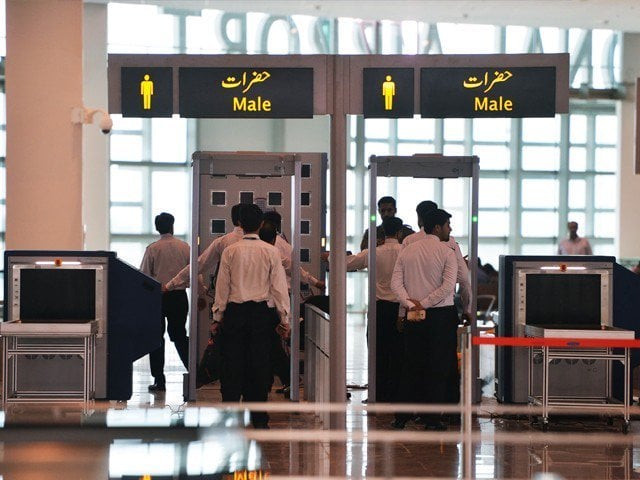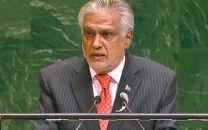Passengers to pay airport tax in rupees instead of dollars
CAA rationalises airport charges over weakening rupee

PHOTO: EXPRESS
The authority’s directives come in the wake of the persistent weakening of the rupee against the greenback.
Passengers were earlier required to pay $20 and the rate has now been rationalised to Rs2,800 per passenger on international departures, according to a CAA notification.
Authorities claimed that the proposed change had been put into immediate effect to ensure passengers had to face no further inconvenience.
On June 19, the Pakistani rupee weakened against the dollar at Rs156.8/157.3 in the inter-bank market compared with Monday’s close of Rs156.45/156.95.
Recently, the State Bank of Pakistan (SBP) let the rupee depreciate massively in the inter-bank market after finalising an agreement with the International Monetary Fund (IMF) for a loan programme on May 12. The rupee has weakened Rs9.04 or 6.11 per cent since June 3.
The IMF has asked Pakistan to end state control of the rupee and let the currency move freely to find its equilibrium against the US dollar and other major world currencies.
The CAA has also taken over the responsibility of collecting the cargo throughput charges.
The collection of charges will boost the CAA revenue by millions of rupees. The sources said the CAA had earlier signed a contract with a private company for the collection of the throughput charges.
However, after receiving complaints against the private company for how it was conducting its operations at the Lahore and Karachi airports, the CAA has terminated the contract. The company was also allegedly charging exorbitant rates on the import of goods.
The CAA has deployed its own staff for the task and senior officials are monitoring the process.
According to sources, the CAA had issued several tenders for the task but no company had expressed its interest.
Previously, the formula for the imposition of the throughput charges on imported goods was quite complex.
The CAA has now made the process simpler by levying fixed throughput charges per kilogramme. Importers will not have to pay additional charges now.



















COMMENTS
Comments are moderated and generally will be posted if they are on-topic and not abusive.
For more information, please see our Comments FAQ